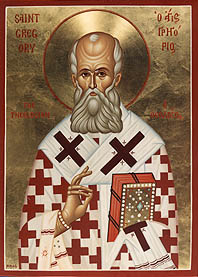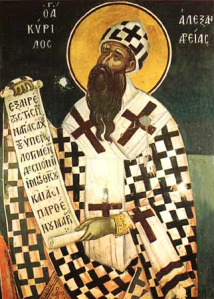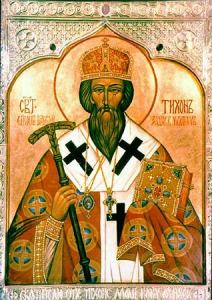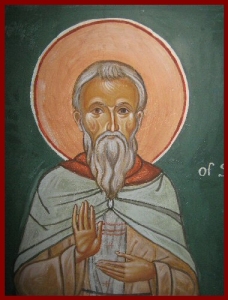 Continued from here….
Continued from here….
These names are still common to Him Who is above us, and to Him Who came for our sake.
But others are peculiarly our own, and belong to that nature which He assumed.
So He is called Man—
—not only that through His Body He may be apprehended by embodied creatures, whereas otherwise this would be impossible because of His incomprehensible nature;
—but also that by Himself He may sanctify humanity, and be as it were a leaven to the whole lump;
—and by uniting to Himself that which was condemned may release it from all condemnation, becoming for all men all things that we are, except sin;
—body, soul, mind and all through which death reaches,
—and thus He became Man, who is the combination of all these;
—God in visible form, because He retained that which is perceived by mind alone.
He is Son of Man, both on account of Adam, and of the Virgin from Whom He came;
—from the one as a forefather, from the other as His Mother, both in accordance with the law of generation, and apart from it.
He is Christ, because of His Godhead;
—for this is the Anointing of His Manhood, and does not, as is the case with all other Anointed Ones, sanctify by its action, but by the Presence in His Fulness of the Anointing One;
—the effect of which is that That which anoints is called Man, and makes that which is anointed God.
He is The Way, because He leads us through Himself.
He is the Door, as letting us in.
He is the Shepherd, as making us dwell in a place of green pastures (Psalm 22[23]:2),
—and bringing us up by waters of rest, and leading us there, and protecting us from wild beasts, converting the erring,
—bringing back that which was lost, binding up that which was broken, guarding the strong, and bringing them together in the fold beyond, with words of pastoral knowledge.
He is he Sheep, as the Victim.
He is the Lamb, as being perfect.
He is the High Priest, as the Offerer;
—Melchisedec, as without mother in that Nature which is above us, and without father in ours;
—and without genealogy above (for who, it says, shall declare His generation?);
—and moreover, as King of Salem, which means Peace, and King of Righteousness, and as receiving tithes from Patriarchs, when they prevail over powers of evil.
They are the titles of the Son.
Walk through them, those that are lofty in a godlike manner;
—those that belong to the body in a manner suitable to them;
—or rather, altogether in a godlike manner, that you may become a god, ascending from below, for His sake Who came down from on high for ours.
Gregory Nazianzen (c.330-390): Oration 30, 21 (slightly adapted).

















